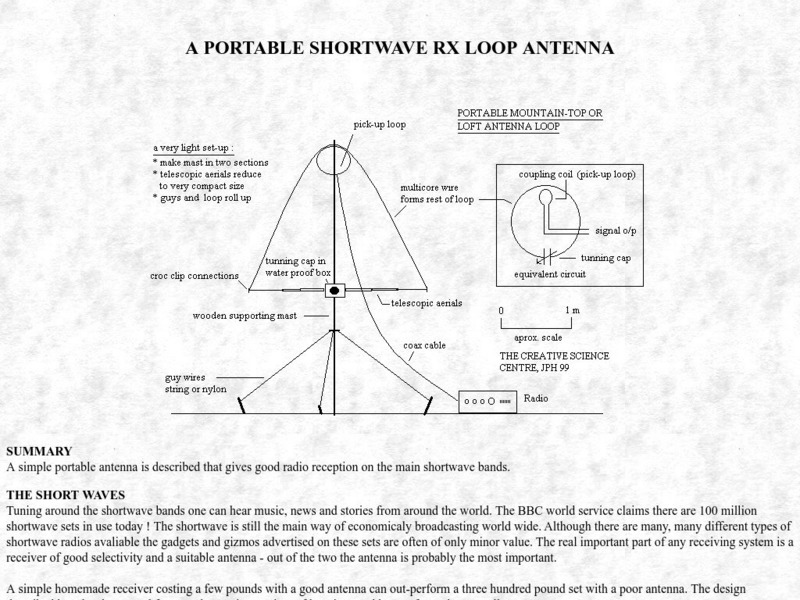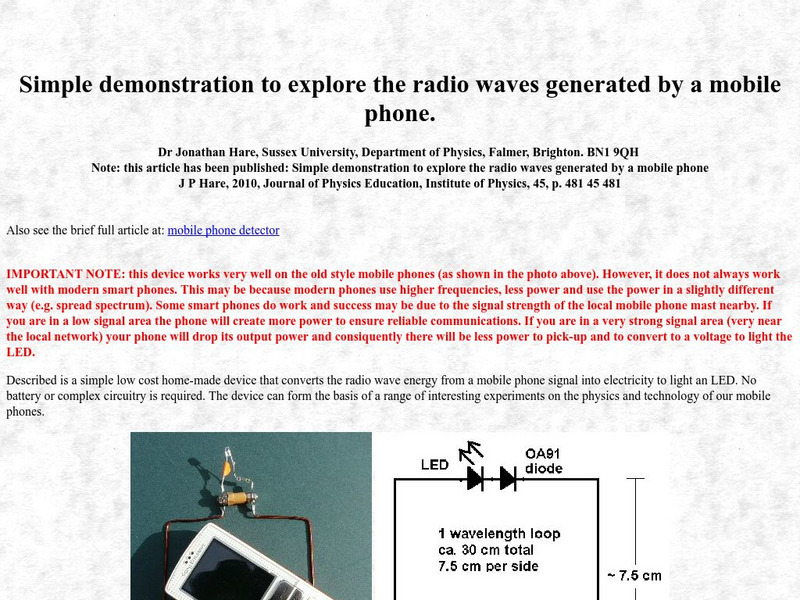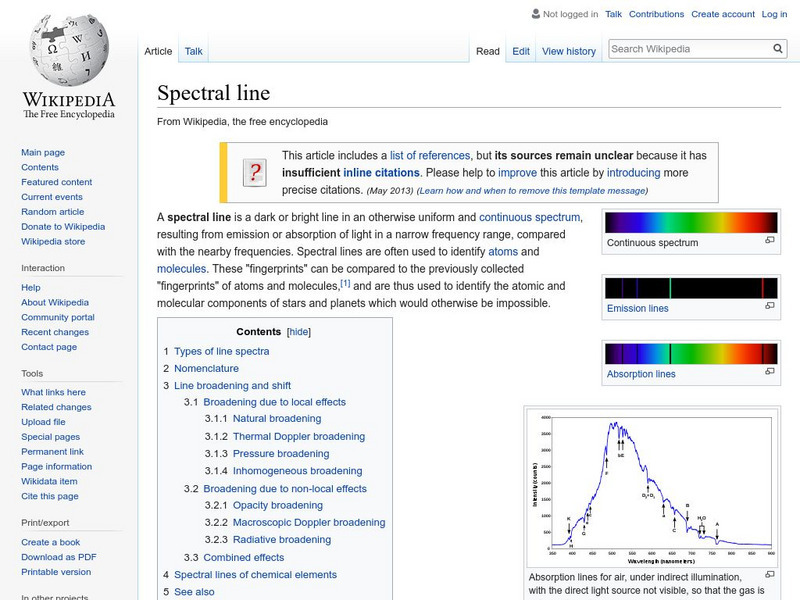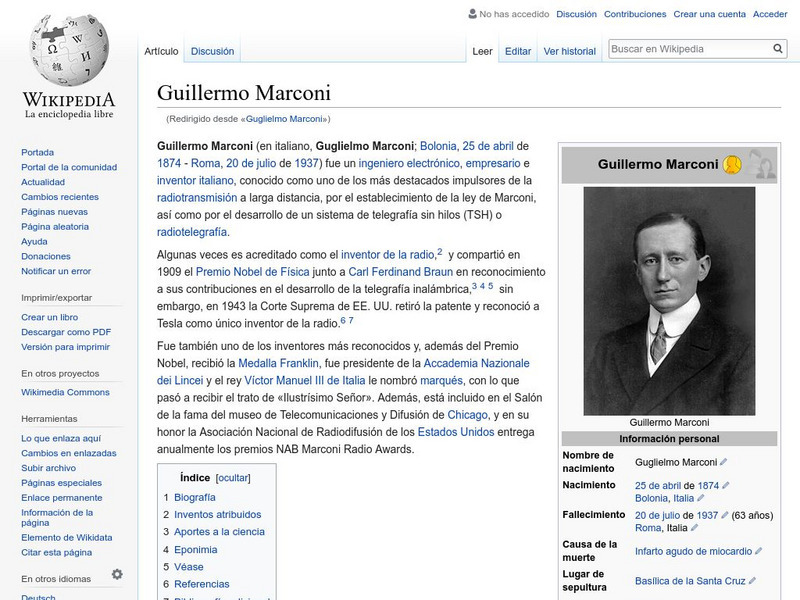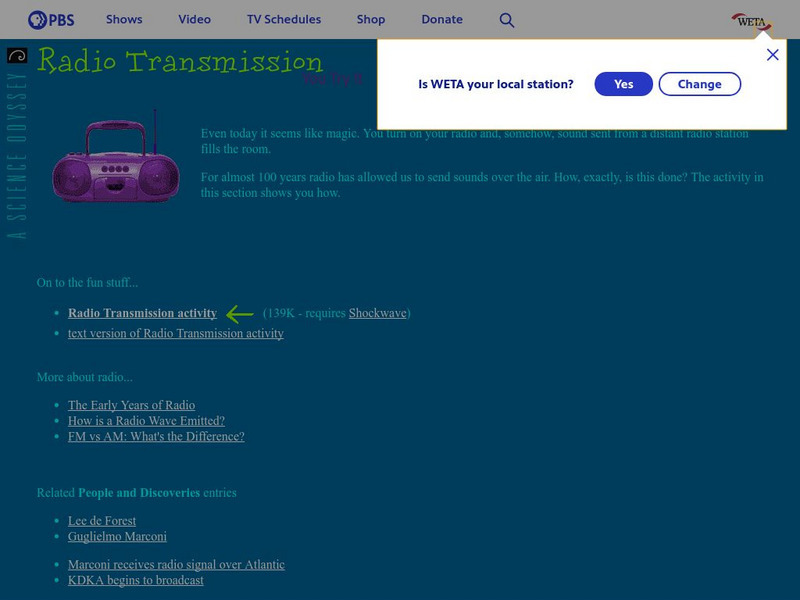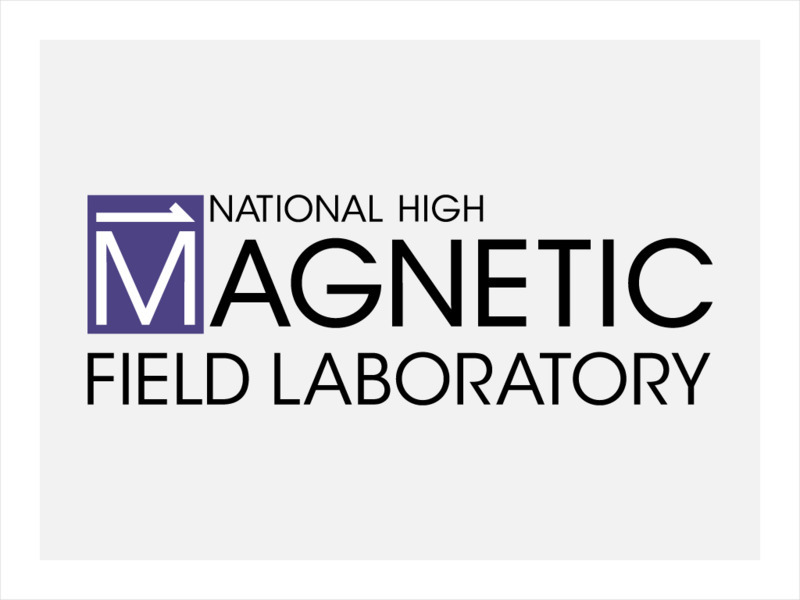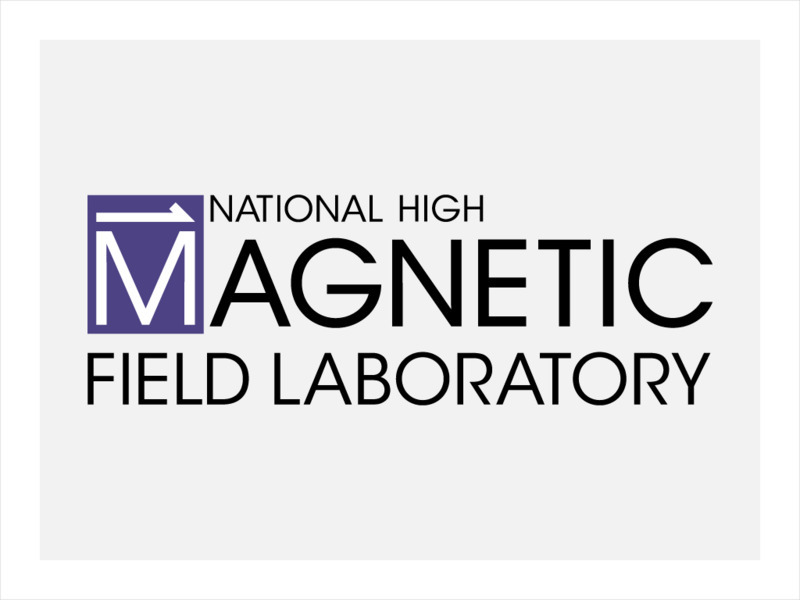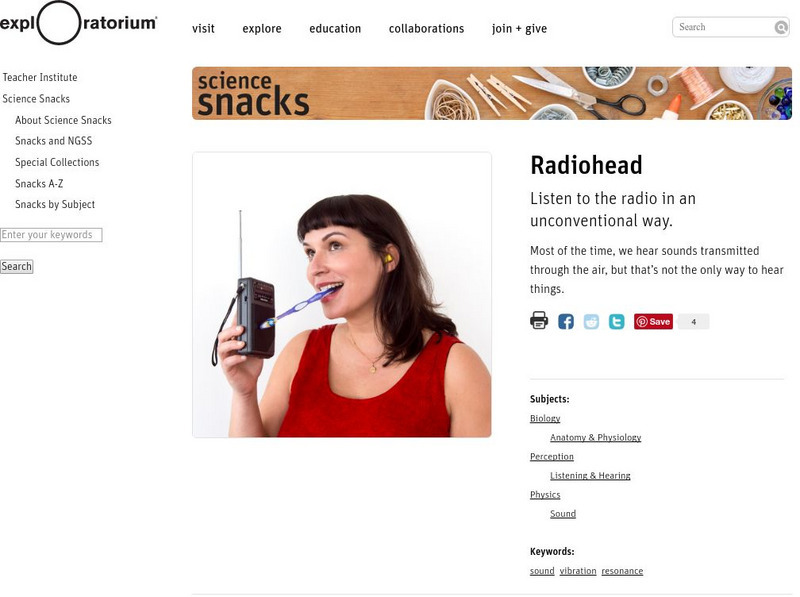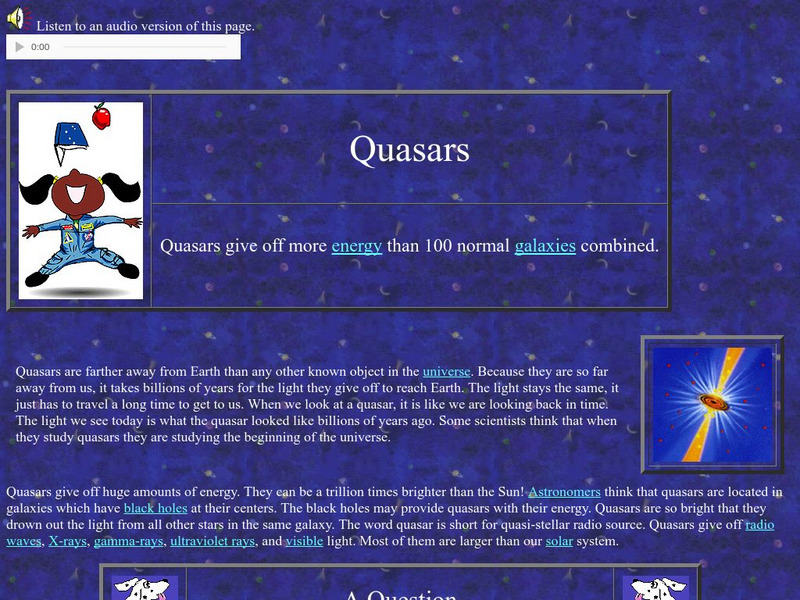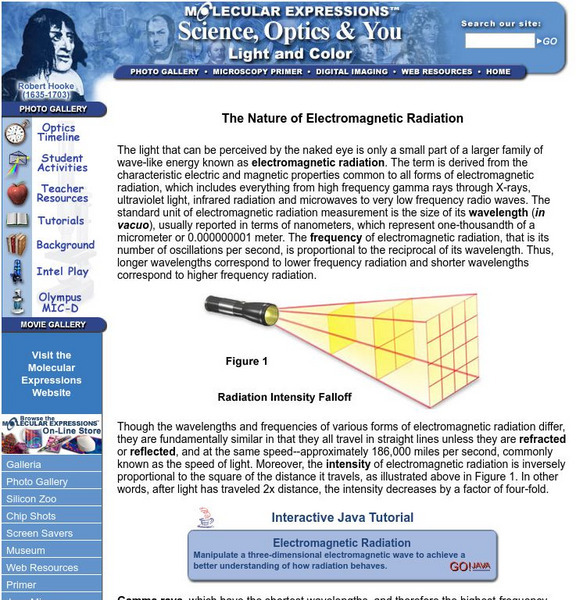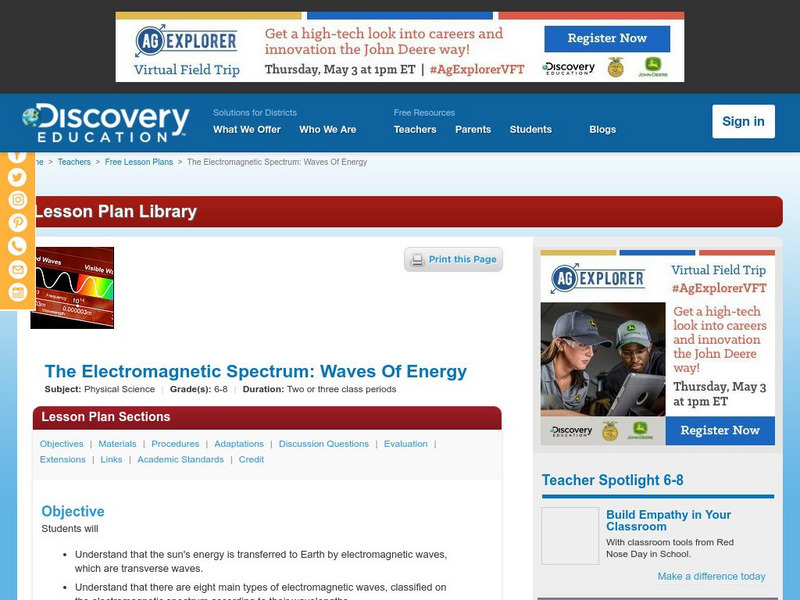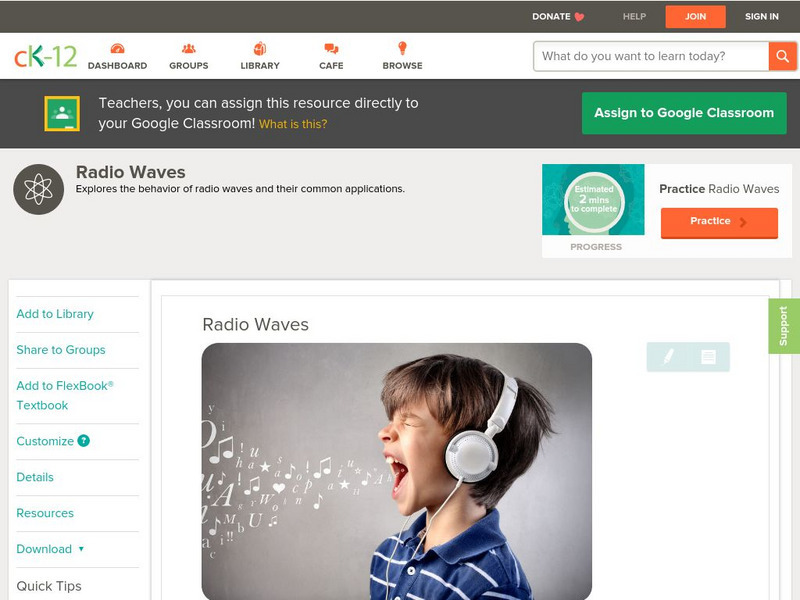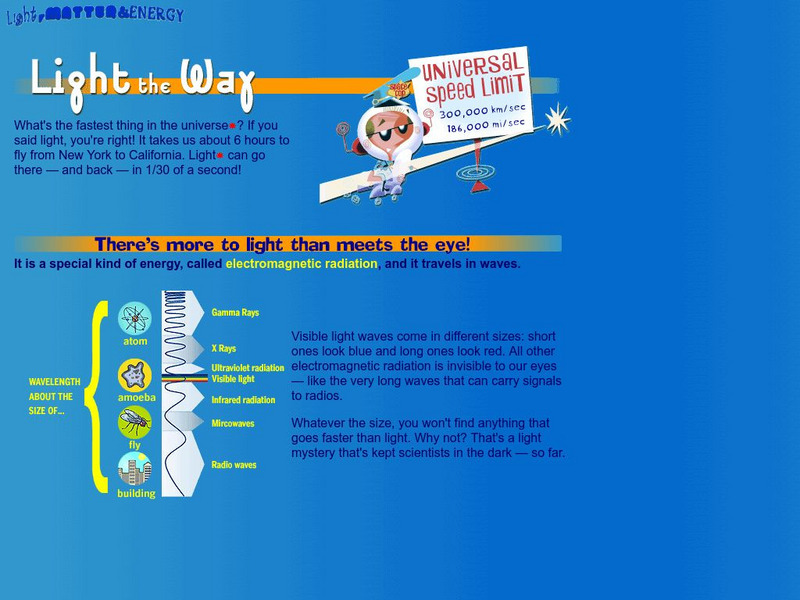NASA
Nasa: Oersted and Ampere Link Electricity
NASA provides a nice blending of the achievements of three scientists, Oersted, Ampere, and Maxwell. This done by NASA-sponsored International Solar-Terrestrial Physics group. Lots of pictures, diagrams, and scientific explanation. Good...
University of California
U.c. Berkeley: Spectra From Space
View the entire spectrum of electromagnetic radiation and get information on telescopes especially designed to view different wavelengths of the spectrum.
University of Colorado
University of Colorado: Ph Et Interactive Simulations: Radio Waves & Electromagnetic Fields
Manually or computer generated, students can test radio waves being transmitted from a virtual radio station to a home. Study the curve, vectors, electric field, and more.
Creative Science Centre
Creative Science Centre: A Portable Shortwave Rx Loop Antenna
A simple portable antenna is described that gives good radio reception on the main shortwave bands.
Creative Science Centre
Creative Science Centre: Demonstration of Radio Waves Generated by Mobile Phone
Described is a simple low cost home-made device that converts the radio wave energy from a mobile phone signal into electricity to light an LED. No battery or complex circuitry is required. The device can form the basis of a range of...
Wikimedia
Wikipedia: Radio Telescope
Wikipedia provides detailed information on radio telescopes, including an image, hyperlinked terms, and related topics.
Wikimedia
Wikipedia: Spectral Line
Wikipedia offers information on spectral line, a dark or bright line in an otherwise uniform and continuous spectrum.
PBS
Pbs Teachers:origins Back to the Beginning
This hour long program by NOVA is split into six segments and examines a issues influencing scientists' current understanding of how the universe was formed. This includes The Big Bang and its lasting effects.
Wikimedia
Wikipedia: Guillermo Marconi
This site chronicles the father of wireless communication. Examines his life and how his accomplishments affected both society and warfare.
PBS
Pbs: Science Odyssey: Radio Transmission
PBS site explores radio transmission and provides a fun activity to go along with it. (Shockwave required) Click on links to discover more about the early years of radio, how radio waves are emitted, what the difference is between AM and...
National High Magnetic Field Laboratory
Magnet Academy: Lodge's Experiment
Sir Oliver Lodge's experiment demonstrating the first tunable radio receiver was an important stepping stone on the path toward the invention of a practical radio.
National High Magnetic Field Laboratory
Magnet Academy: Heinrich Hertz
The discovery of radio waves, which was widely seen as confirmation of James Clerk Maxwell's electromagnetic theory and paved the way for numerous advances in communication technology, was made by German physicist Heinrich Hertz. In the...
Exploratorium
Exploratorium: Science Snacks: Radiohead
Try this experiment to see how sound transmits as vibrations through solid matter. You will use a toothbrush to listen to the radio.
NASA
Nasa Star Child: Quasars (Level 1)
Learn why quasars are the brightest things in the universe. Vocabulary words linked to a glossary of terms and a printable version are available.
NASA
Nasa Star Child: Comets (Level 1)
Younger students learn why comets race through the sky as well as related vocabulary words and meanings.
NASA
Nasa: The Space Place: The Land of the Magic Windows
This is a site from NASA that contains an interesting and fun way to learn about the electromagnetic spectrum. Kate receives a strange riddle from her grandfather. Find out what it says and go through the gateway to the Land of the Magic...
Florida State University
Florida State University: Nature of Electromagnetic Radiation
This site from The Florida State University provides an informational page on electromagnetic radiation discusses the characteristics and properties of its many forms including X-rays, gamma rays, ultraviolet radiation, infrared...
NASA
Nasa: Electromagnetic Spectrum: Radio Waves
Radio waves have the longest wavelengths in the electromagnetic spectrum. This NASA article discusses AM, FM, TV, cell phone, as well as radio astronomy, which all use this technology.
University of California
Uc Berkeley: Radio Spectrum
From a course titled "Structure and Interpretation of Signals and Systems." A discussion of the entire radio spectrum, listing wavelength and frequency values for its various parts. The uses of each region of the radio spectrum is...
Discovery Education
Discovery Education: The Em Spectrum: Waves of Energy
Students are introduced to the electromagnetic spectrum through this group research activity. Each group investigates a different wavelength range within the em spectrum and reports back to class. Discussion ideas also included.
CK-12 Foundation
Ck 12: Physical Science: Radio Waves
[Free Registration/Login may be required to access all resource tools.] Radio waves and how they are used for AM and FM radio and television.
NASA
Nasa: The Inspire Project
An educational site devoted to the study of radio signals in our environment. The project seeks schools, classrooms, and individual students and teachers who are willing to participate in the collection and analysis of radio signal data....
Creative Science Centre
Creative Science Centre: Demonstration to Show Mobile Phones Emit Radio Waves
This is a very simple and cheap device that demonstrates that mobile phones generate radio waves.
American Museum of Natural History
American Museum of Natural History: O Logy: Light, Matter, Energy: Light the Way
What is electromagnetic radiation and how does it work? Review a captioned graphic that explains electromagnetic radiation and the visible and invisible types of radiation on the electromagnetic spectrum.





